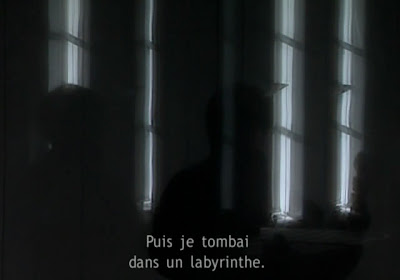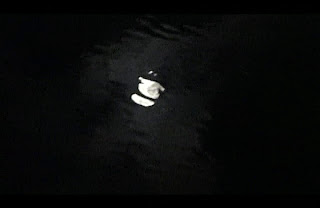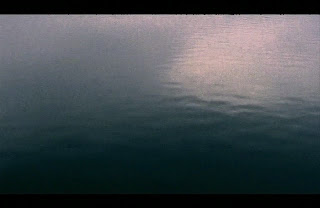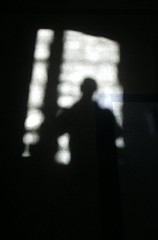From behind 2.28
Akasha film-project with Andrej Tarkovsky
Andrej Tarkovsky sat in a room next to a kitchen in Berlin. One of the few greats among directors of film, cast out by the Soviet Film Union, unknown in Hollywood.
Emissaries lead me to this hide-out. Via third parties we had signalled our shared intention to produce a film, based on the book Akasha-Chronicles, by Rudolf Steiner; Tarkovsky had heard of the Kollektiv-films Deutschland im Herbst, Germany in Autumn, Der Kandidat, Krieg und Frieden, War and Peace). He was willing to collaborate.
One difference of opinion had to be overcome. I assumed that this film was to be produced without official subsidies. Therefore the conditions for the shoot had to be simple, i.e. inexpensive. The content, including references to the secret doctrine of Helene Blawatsky which I wanted to include as the background to Steiner's argumentation, consisted only very minimally of "images possible to film". Andrej Tarkovsky on the other hand considered that the shoot had to take place at a special locale, e.g. a crossroads between the Himalayas and Karakoram , which is to say on Tibetan territory. There were Chreodes [Chreoden] there, he began our conversation, as soon as my tea had been served. These were "necessary ways". Only in such places -a place was only ever the sum of all movement that had taken place at it- was it auspicious that a film recording, even that the mere plan of such a recording could succeed. Without the right place we would not even be able to begin to imagine anything.
[...]
There existed, Tarkovsky said, after I had been served a second tea and two blinis, in Southern Italy, not far from Naples, one of the "fountains", already known in antiquity (and mentioned in Ovid), and he had been there. Access was complicated, because the fountain had been built-over by a Christian chapel. The chapel on the other hand could only be found if one located a passage in the cellars of a patrician house, a mansion, which lead to deeper cellar vaults. From there one had to hack open the ground. There light would erupt, because it was all situated on a slope, and access can be found. Upon entering I had immediately had the sensation, Tarkowski said, that the passage only a little deeper, just beneath the ground's surface, led to one of those fountains that establish the connection to the underworld. The entire film revolved around this sensation.
[continued in comment]
Alexander Kluge, Chronik der Gefuehle, Suhrkamp, Frankfurt/Main, 2000, p. 472-77. Transl. mine.







